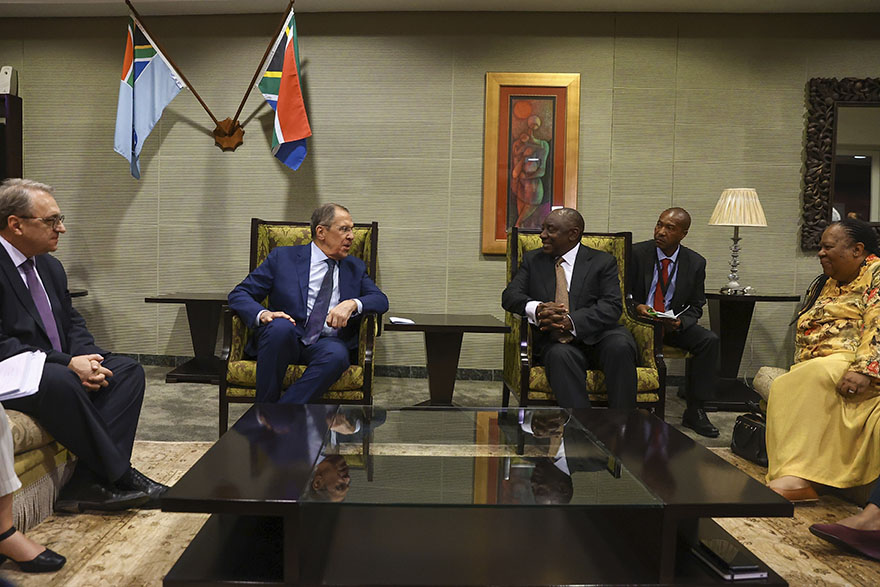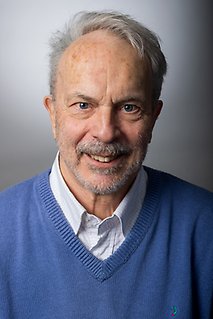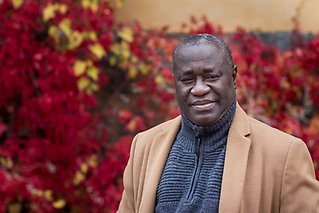Researcher: War in Ukraine has accelerated African geopolitical repositioning

South African president Cyril Ramaphosa and Russian foreign minister Sergey Lavrov during a meeting in Pretoria, South Africa, on 23 January. Photo: Russian Foreign Ministry Press Service via AP
Two-part series: The ANC and today's South Africa
In two new articles we ask our researchers to analyze political developments in South Africa.
The first piece looks into the country’s new geopolitical challenge. The second, explores the political and economic implications of South Africa’s energy crisis.
South Africa’s government, led by the African National Congress, is strengthening security ties with Russia, much to the frustration of Western governments. ANC leaders’ strong ties with Moscow date back to the Soviet Union’s support for the struggle against apartheid – but is cosying up to the Kremlin a product of ANC history or of pragmatic politics?
When Russia staged referendums in four occupied regions in Ukraine in September 2022, among the few foreign observers were members of the ANC’s Youth League (ANCYL). They praised the initiative and Russians’ right to self-determination. In the West, the referendums were described as a sham process to legitimise the illegal annexation of Ukrainian territory.
The ANCYL’s presence in areas of Ukraine occupied by Russian forces was an illustration of the extent of the ANC movement’s ties with Russia.
Between the early 1960s and late 1980s, the Soviet Union supported the anti-apartheid struggle with money, weapons and military training, and ANC leaders travelled to Moscow for specialised political training.
Given the strong historical connection between the ANC and the Kremlin, since Russia’s attack on Ukraine 24 February 2022 it is not surprising that the South African government has done everything it can to avoid antagonising its old ally. South Africa has refused to name or condemn the invasion and called for negotiations.
However, as the ANC’s influence in South African politics declines – the party has lost votes in every election since 2004 – are the days of the country’s pro-Russia policy numbered?
Polling company Ipsos in December 2022 put the ANC’s share of the vote at only 45 percent. This means that, for the first time, the party is not unlikely to lose its majority in the National Assembly in the 2024 elections.
South Africa’s second-largest party, the Democratic Alliance (DA), takes a diametrically opposite position on Russia’s war against Ukraine.
“Freedom-loving South Africans, overwhelmingly, are appalled by what the Russian military is doing to the people of Ukraine”, DA party leader John Steenhuisen said in a speech in May 2022. “The ANC most certainly does not speak for South Africa on Ukraine”.

Henning Melber. Photo: Mattias Sköld
However, despite the decline of the ANC, it is hard to imagine the DA emerging as the dominant party in South Africa, according to NAI Associate Henning Melber.
“The DA seems destined to hover around 20 percent – it is unlikely that they will ever get more than 25 percent”, Melber says. In the 2019 elections, the DA won 20.77 percent of the vote; in 2014 it won 22.20 percent.
The DA traces its roots back to the white parliamentary opposition, which in the 1950s began to oppose the system of apartheid under the ruling National Party. Traditionally a white liberal party, the DA has struggled to attract black voters.
In the 2019 national and provincial elections, it unsuccessfully tried to sell the party to black voters as a viable non-racial alternative. Instead, it alienated existing white voters and the DA’s first black leader, Mmusi Maimane, stepped down.
While polls suggest the ANC may well lose its majority in the 2024 elections, it is unclear which party it would then join forces with.
Russia-China-South Africa and military cooperation
In February 2023, South Africa held a joint military exercise with Russia and China. The US criticised the ten-day naval drills, which coincided with the first anniversary of the war in Ukraine.
South Africa's government insisted that it remained neutral regarding the conflict, and that it routinely hosts similar drills with other countries, including France and the US. Opposition figures in the country, however, said that the exercise amounted to an endorsement of Russia's invasion of Ukraine.
It could form a coalition government with the DA, or it could collaborate with the Economic Freedom Fighters (EFF), a radical-populist pan-African offshoot of the ANC. EFF leader Julius Malema has openly praised Russian President Vladimir Putin and called the International Criminal Court in The Hague “hypocrites”.
“If there was a government coalition of the ANC and the DA, foreign relations would be among the major differences which required compromises. It would be among the biggest challenges to agree on how South Africa should position itself geostrategically. In contrast, the current ANC pro-Russia policy would be agreed by the EFF”, Melber says.
And perhaps party politics will not affect South Africa’s security policy as much as the past year’s heated political debates may suggest.
The government’s position is first and foremost shaped by geopolitical equations, argues Prof. Kwesi Aning, NAI associate and director of the Faculty of Academic Affairs & Research at the Kofi Annan International Peacekeeping Training Centre in Accra, Ghana.
“South Africa's analysts are telling the government, ‘This is where our strategic interests lie, this is how we need to position ourselves.’ So I don’t think there’ll be a dramatic change, even with a weaker ANC, after the next election”, Aning says.

Kwesi Aning. Photo: Mattias Sköld
In 2010, South Africa became the ‘S’ in the BRICS, a group of large emerging markets. BRICS membership gives South Africa a seat at a table with big powers such as Russia, India and China.
At the same time, the South African economy is dependent on the US and Europe for exports, foreign direct investment and international holdings of its assets.
Before Russia’s attack on Ukraine last year, US and European governments generally accepted South Africa’s dual engagement with BRICS and Western partners. But growing geopolitical tensions are making the balancing act more difficult.
“Until now, the Western and US ties have economically been the strongest ones. Would a replacement pay off? The ANC’s current attitude remains shaped by a historical affinity to the Soviet Union. This policy has created some facts which would have to be reversed. It is difficult to judge how this would be achieved inside the party. The ANC most likely has no common ground on its Russia policy”, Melber says.
The combination of China’s economic weight and Russia’s ability to provide energy and security is interesting from a South African perspective, according to Aning.
“The Russians are now the single largest provider of nuclear infrastructure in Africa, beating the French who have been on the continent for a long time through the French national energy producer Areva”, Aning says.
This is BRICS
An acronym for five leading emerging economies: Brazil, Russia, India, China, and South Africa. The first four were initially grouped as "BRIC" (or "the BRICs") in 2001 by Goldman Sachs economist Jim O'Neill, who coined the term to describe fast-growing economies that would collectively dominate the global economy by 2050. South Africa was added in 2010.
It is not a free trade bloc, but members do coordinate on trade matters and have established a policy bank, the New Development Bank, to manage infrastructure loans. Algeria, Argentina, Indonesia, Saudi Arabia and Iran have also applied for membership. Kazakhstan, Nicaragua, Nigeria, Senegal, Thailand and the United Arab Emirates, all had their finance ministers present at a BRICS expansion dialogue in May, 2022.
As Russia and China push for an expansion of the BRICS initiative – Algeria, Argentina, Indonesia, Saudi Arabia and Iran have already applied for membership – and with political and military collaboration added to the original focus on trade, the stakes are getting higher.
“I think any assessment of the BRICS initiative five or six years ago, ought to have seen that the emergence of a military partnership was coming. An integration process which starts with economics over time can develop into a gradually closer military alliance to protect the self-interest of its member states”, Aning says.
South Africa’s relationship with Russia should also be seen in light of a broader trend, where African countries reposition themselves geopolitically – a process the war in Ukraine has put on fast forward, according to Aning.
“There's a fundamental African position that says, ‘The West’s enemies are not my enemies. I have a right to interpret what is going on within the context of my own interests. I may be critical of how the war is fought, but I am not a party to the war’”, Aning concludes.
TEXT: Mattias Sköld
